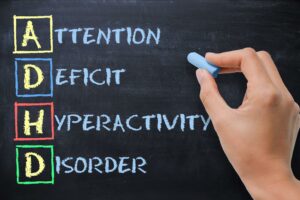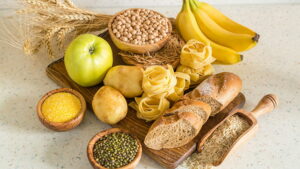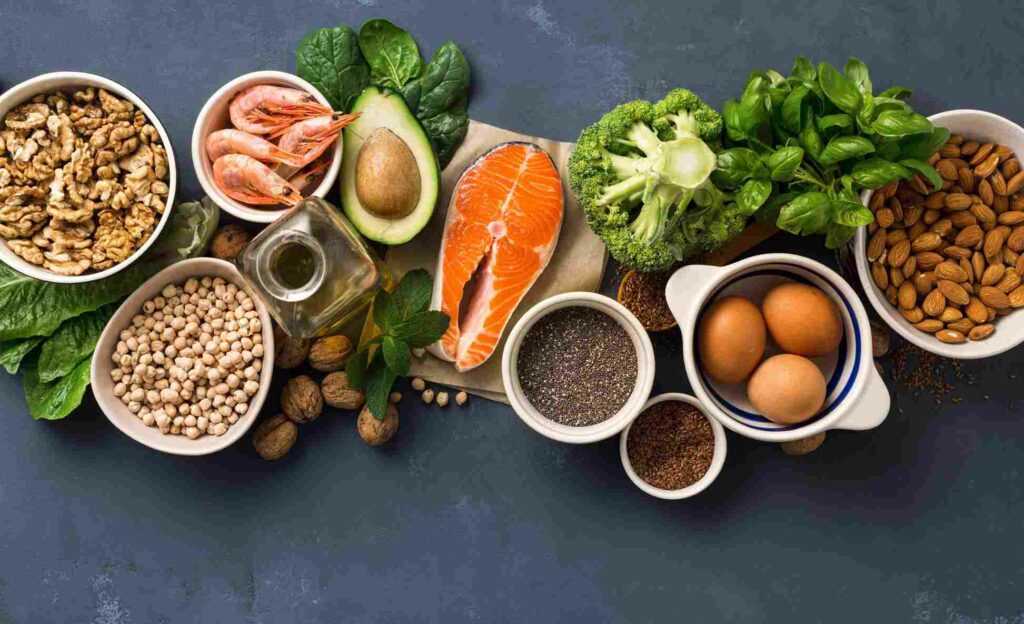If you are one of the many people who suffer from ADHD, you know how difficult it can be to focus on anything. The good news is that there are steps you can take to help improve your focus and concentration, including changing your diet. In this blog post, we will discuss the best and worst foods for people with ADHD, as well as some tips for creating a healthy ADHD diet.
Contents
Is ADHD A Nutritional Deficiency?
 ADHD is a condition that is believed to be related to brain chemistry and genetics, not a nutritional deficiency. However, certain nutrients have been found to have an impact on ADHD symptoms. But in the simplest way, ADHD might be caused by a combination of genetic and environmental factors, including nutrition.
ADHD is a condition that is believed to be related to brain chemistry and genetics, not a nutritional deficiency. However, certain nutrients have been found to have an impact on ADHD symptoms. But in the simplest way, ADHD might be caused by a combination of genetic and environmental factors, including nutrition.
For example, essential fatty acids such as omega-three have been found to improve focus and behavior in individuals with ADHD. On the other hand, preservatives and food colorings have been linked to worsening symptoms. There is believed to have a connection between ADHD and food sensitivities, such as gluten intolerance.
It is important to pay attention to how certain foods affect your symptoms and make dietary adjustments accordingly. For example, one theory suggests that a diet high in protein and low in simple carbohydrates can improve symptoms. It is important to consult with a healthcare professional before making significant changes to your diet.
What Foods To Choose For ADHD Nutrition?
As a general rule, opting for whole foods over processed options is always a good idea. But there are many things that you should choose if you are suffering from ADHD. Let’s outline a few examples to get you started:
Omega-rich foods
This is one of the most important types of foods for ADHD. Foods high in omega-three fatty acids, such as salmon and walnuts, have been shown to improve symptoms of ADHD. Because when you have a diet that is high in omega-three fatty acids, helps to improve communication between cells in the brain. And in many studies, it has been shown to improve focus, learning, and memory.
Protein-rich foods
Another important aspect of ADHD nutrition is including protein in each meal. Proteins help to sustain energy levels throughout the day, preventing any mid-afternoon crashes that can lead to a lack of focus. Choose lean proteins such as chicken, turkey, or fish, and try to include them in every meal.
Leafy greens and cruciferous vegetables
Leafy greens are those dark, leafy vegetables like spinach and kale. Cruciferous vegetables include broccoli, cauliflower, and Brussels sprouts. These types of veggies are high in essential nutrients like iron, folate, and vitamin K. They also contain phytonutrients that may help improve brain function and mental focus.
Complex carbohydrates
 It is important to include complex carbohydrates in your diet as they help regulate blood sugar levels and provide sustained energy. Examples of foods high in complex carbs are whole grains, legumes, fruits, and vegetables. And these types of food also offer essential vitamins and minerals.
It is important to include complex carbohydrates in your diet as they help regulate blood sugar levels and provide sustained energy. Examples of foods high in complex carbs are whole grains, legumes, fruits, and vegetables. And these types of food also offer essential vitamins and minerals.
These are a few foods that you should include in your diet in order to support brain function and energy levels. So do not skip out on whole grains, legumes, fruits, and vegetables. Let’s further move on to the food options that you should avoid.
What Foods Should Be Avoided With ADHD?
While there is no specific ADHD diet, there are certain foods that may worsen symptoms and should be avoided. These include:
Processed foods
It is one of the biggest offenders, as they often contain excess sugar, artificial ingredients, and preservatives. These additives can lead to spikes in blood sugar levels and behavior issues. This can cause a cycle of hyperactivity followed by a crash. And further, it can also contribute to long-term health issues such as obesity and diabetes.
Highly caffeinated drinks
Caffeine may temporarily improve focus, but it can also cause restlessness and irritability. It’s best to limit or avoid caffeine altogether. In fact, coffee is believed to worsen symptoms of ADHD because it can disrupt sleep and cause anxiety.
Sugary drinks
Now, this type of drink may seem like a quick pick-me-up, but it can actually have the opposite effect on those with ADHD. The sugar rush will give a temporary boost of energy but can lead to crashes and mood swings later on. Instead, opt for water or unsweetened tea to keep hydrated and maintain steady energy levels throughout the day.
Artificial food dyes
There are some studies that suggest a link between artificial food dyes and ADHD symptoms. It’s worth experimenting with eliminating these dyes from your diet to see if it helps with your symptoms. For example, try swapping out brightly colored packaged snacks for naturally colorful fruits and vegetables.
So these are a few foods that you should avoid if you have ADHD. It is believed that a balanced diet can help improve symptoms. Remember to listen to your body and consult with a healthcare professional before making any major dietary changes. With the right nutrition plan, you can potentially see improvements in your ADHD symptoms. Good luck on your journey!
What Nutrients Help With ADHD?
 There are various types of nutrients that have been shown to improve symptoms of ADHD, including:
There are various types of nutrients that have been shown to improve symptoms of ADHD, including:
- Omega-three fatty acids
- Protein
- Iron
- Zinc
- Magnesium
- Vitamin D
These are some examples of nutrients that can help you manage your ADHD symptoms, but it is important to remember that everyone’s body and brain chemistry is unique. It may be helpful to consult with a nutritionist or healthcare professional about what specific nutrients might benefit you the most.
Overall, nourishing your body with the right nutrients can have a positive impact on managing ADHD symptoms. However, it is also important to pay attention to what foods and substances you should avoid.
What Other Things You Can Do To Manage ADHD?
As nutrition is not only a factor in managing ADHD, there are other ways to help improve symptoms. Some of these include:
- Exercise: It is often recommended for all individuals to get regular exercise, but for those with ADHD it can be especially beneficial. It can improve focus and attention, as well as mood and overall mental health.
- Sleep: Getting enough quality sleep is important for everyone, but even more so for those with ADHD. A lack of sleep can worsen symptoms and make managing them even more difficult.
- Stress management: Finding ways to manage stress, whether it be through meditation, therapy, or other methods can also improve symptoms of ADHD.
In addition to these, you can consult with a professional, such as a therapist or nutritionist, to come up with a plan that works for you and your specific needs. Remember, every individual is different and what works for one person may not work for another.
It is important to find what works best for you and continue to make adjustments as needed. Keep in mind that nutrition is just one aspect of managing ADHD, but it can have a significant impact on symptoms and overall health. By making small changes to your diet and being mindful of what you eat, you can help improve your symptoms and overall well-being.
Conclusion
To conclude, ADHD nutrition can play a crucial role in managing symptoms and improving overall health. It is important to focus on consuming whole, nutrient-dense foods while avoiding processed and sugary items. Many people have found that implementing a diet low in artificial additives, preservatives, and food dyes can be beneficial.
Remember to consult with a healthcare professional before making any major dietary changes. Because every person is unique, what works for one individual may not work for another. It may take some trial and error to find the best approach for you or your child’s specific needs.
If you are struggling then please contact Therapy Mantra for help. The team of experts here will be more than happy to help you out and get you on the path to a better life. Contact us today to learn more about our services. You can also book an online therapy session or download our free Android or iOS app.


